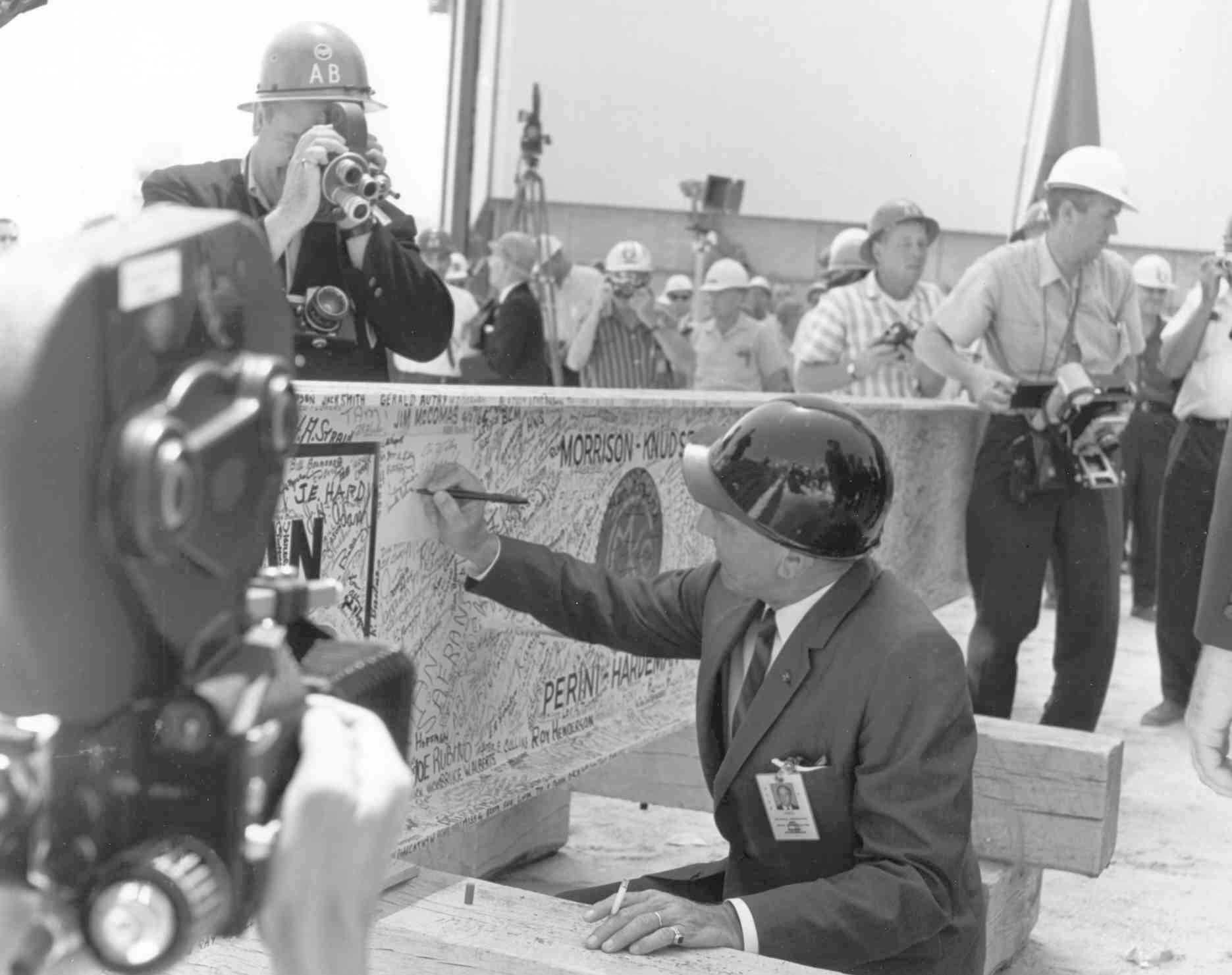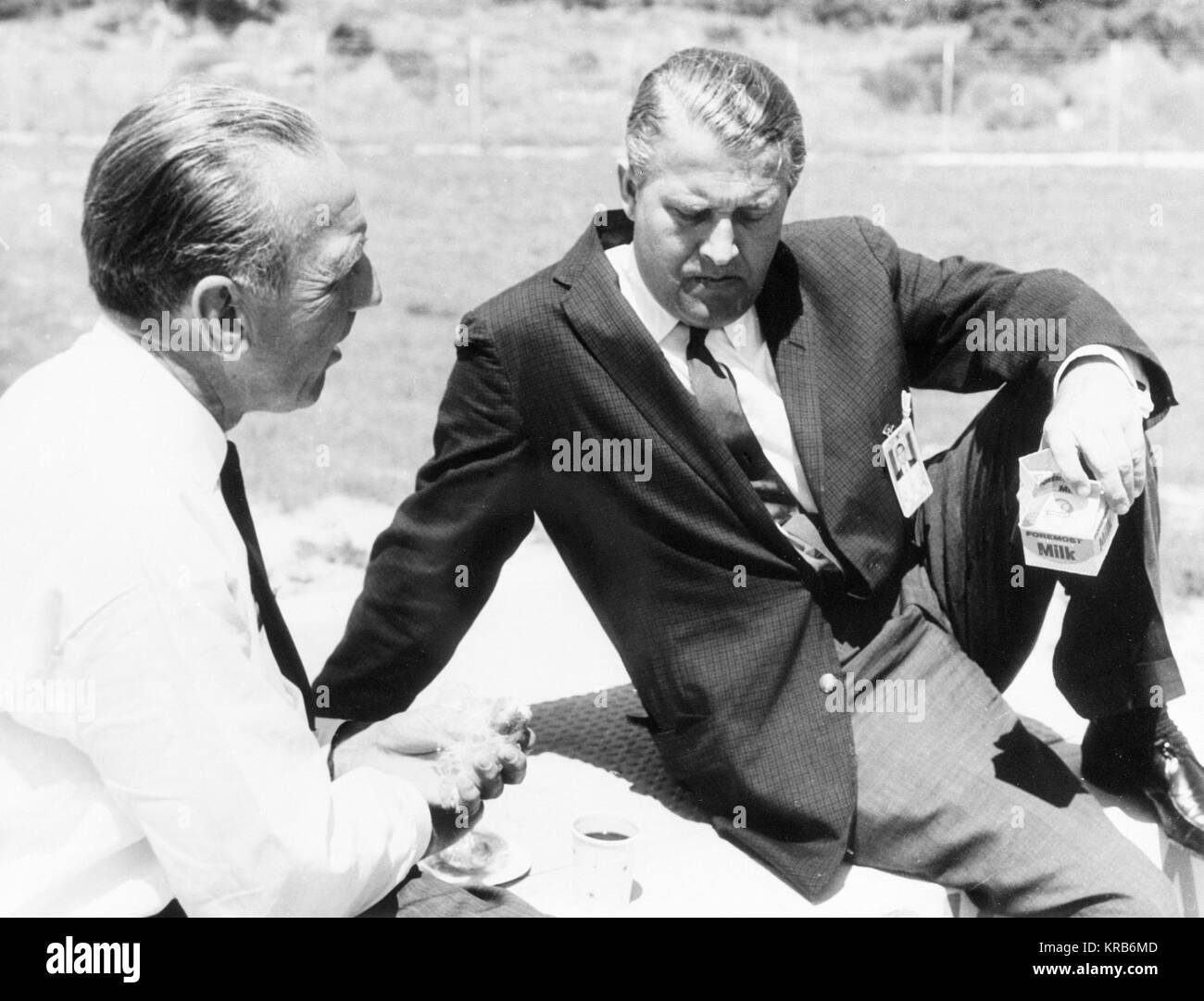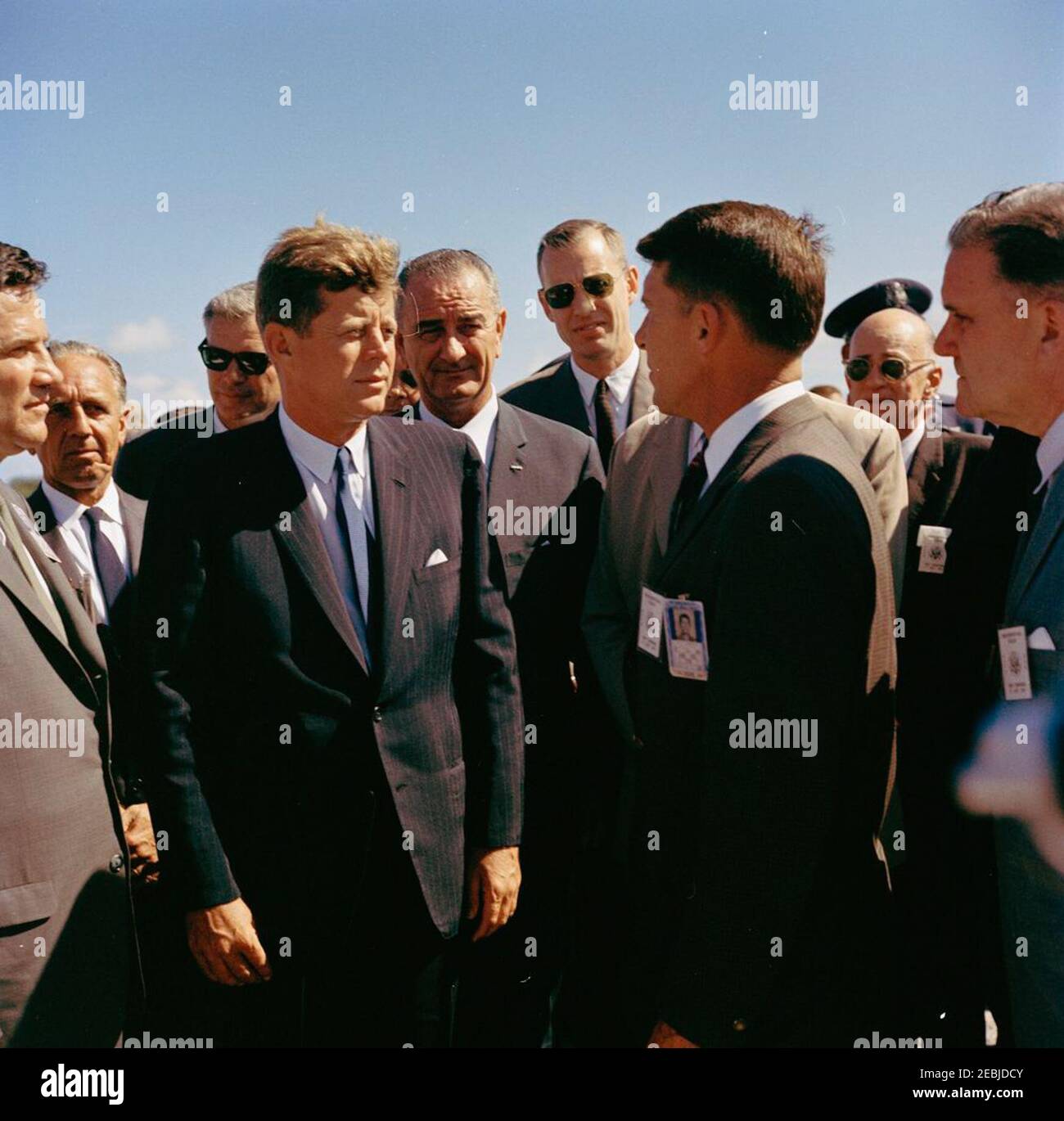Kurt Debus: The Man Who Helped Launch The Space Age
When you talk about space exploration, one name that deserves a standing ovation is Kurt Debus. This guy wasn’t just some random engineer; he was the brains behind some of NASA’s most iconic missions. From Apollo 11 to the Saturn V rocket program, Debus was a key player who helped humanity take those first steps on the Moon. But who exactly was this guy, and why does his legacy still matter today? Let’s dive in and find out!
Kurt Debus wasn’t just a rocket scientist—he was a trailblazer. His work didn’t just stop at sending rockets into space; he was instrumental in building the infrastructure that made space travel possible. His contributions to NASA are the reason we have a better understanding of the cosmos today. But before we get into all the cool stuff he did, let’s take a moment to appreciate the man behind the missions.
If you’re into space history or just curious about the people who made it all happen, you’re in the right place. This article is going to give you the lowdown on Kurt Debus, his achievements, and why his work still matters in 2023. So buckle up, because we’re about to take a trip through time and space!
- Montel Kamala The Ultimate Guide To Her Life Career And Achievements
- Unveiling Carly Matros The Rising Star In The Spotlight
Who Was Kurt Debus?
Kurt Debus wasn’t just a name on a NASA badge; he was a guy who lived and breathed space exploration. Born in 1908 in Frankfurt, Germany, Debus had a fascination with rockets from an early age. But here’s the twist—his journey wasn’t always smooth sailing. In fact, his career took some pretty wild turns before he ended up in the United States working for NASA.
Debus started his career in Germany, where he worked with Wernher von Braun on the V-2 rocket program during World War II. Now, before you judge too quickly, remember that this was a different time, and Debus’s work was all about pushing the boundaries of science and engineering. After the war, he and his team were brought to the United States as part of Operation Paperclip, a program that brought top German scientists to America to help with the space race.
Early Life and Education
Debus’s early life was all about setting the stage for greatness. Growing up in Germany, he had a natural curiosity about how things worked. He studied electrical engineering at the Technical University of Darmstadt and later earned his doctorate in engineering. But it wasn’t just about the books for this guy—he was all about hands-on learning.
- Exploring Black Kissing Gay Understanding Love Beyond Labels
- Wren Keasler The Rising Star In The Spotlight
- Debus was born in 1908 in Frankfurt, Germany.
- He graduated from the Technical University of Darmstadt with a degree in electrical engineering.
- His fascination with rockets began in the 1930s when he joined the German Rocket Society.
Kurt Debus’s Role in NASA
When Debus arrived in the United States, he quickly became a key player in the space race. NASA recognized his expertise and put him in charge of some of the most critical programs. One of his biggest roles was as the director of the Launch Operations Center at Cape Canaveral, which later became the Kennedy Space Center.
Under Debus’s leadership, NASA launched some of its most historic missions, including Apollo 11, the mission that put humans on the Moon for the first time. But it wasn’t just about the launches—Debus was also responsible for building the infrastructure that made these missions possible. He was a guy who believed in doing things right the first time, and his dedication paid off big time.
The Saturn V Rocket Program
One of Debus’s most significant achievements was his work on the Saturn V rocket program. This rocket was the powerhouse behind the Apollo missions, and Debus was the guy who made sure it worked flawlessly. The Saturn V remains one of the most powerful rockets ever built, and its success is a testament to Debus’s engineering prowess.
- The Saturn V rocket was developed under Debus’s supervision.
- It was the first rocket to successfully send humans to the Moon.
- Debus’s team faced numerous challenges but overcame them with innovation and teamwork.
The Legacy of Kurt Debus
Debus’s legacy isn’t just about the rockets he launched or the missions he oversaw. It’s about the impact he had on the future of space exploration. His work laid the foundation for everything we’ve achieved in space since the 1960s. From the International Space Station to modern Mars missions, Debus’s influence can still be felt today.
But here’s the thing—Debus wasn’t just about the hardware. He was also a guy who cared deeply about the people he worked with. He believed in fostering a culture of collaboration and innovation, and that’s something that’s still alive and well at NASA today.
Debus’s Influence on Modern Space Exploration
If you think about it, a lot of what we do in space today is built on the foundation Debus laid down. His work on launch operations and rocket design set the standard for future missions. But it’s not just about the tech—Debus’s leadership style and commitment to excellence are still inspiring engineers and scientists around the world.
- Debus’s work on launch operations is still used as a model for modern missions.
- His emphasis on teamwork and collaboration is a key part of NASA’s culture today.
- His legacy lives on in the continued exploration of space and the search for new frontiers.
Biography of Kurt Debus
Let’s take a closer look at the life and career of Kurt Debus. This guy wasn’t just a rocket scientist; he was a true pioneer in the field of space exploration. Below is a breakdown of his life and achievements, presented in a table format for easy reference.
| Year | Event |
|---|---|
| 1908 | Born in Frankfurt, Germany |
| 1931 | Graduated from Technical University of Darmstadt |
| 1939 | Joined the German Rocket Society |
| 1945 | Moved to the United States as part of Operation Paperclip |
| 1960 | Became director of the Launch Operations Center at Cape Canaveral |
| 1967 | oversaw the launch of Apollo 4, the first Saturn V mission |
| 1969 | Played a key role in the Apollo 11 Moon landing |
| 1974 | Retired from NASA |
| 1983 | Passed away at the age of 75 |
Challenges Faced by Kurt Debus
Debus’s career wasn’t without its challenges. From technical hurdles to political pressures, he faced a lot of obstacles along the way. But here’s the thing—Debus wasn’t the type of guy to let setbacks stop him. He tackled each problem head-on and found solutions that worked.
One of the biggest challenges Debus faced was the transition from the V-2 rocket program to the Saturn V. This was a massive leap in technology, and it required a lot of innovation and creativity. But Debus was up to the task, and his team rose to the challenge.
Overcoming Technical Challenges
Debus’s ability to overcome technical challenges was one of his greatest strengths. Whether it was troubleshooting rocket engines or designing launch pads, he was always thinking outside the box. His approach to problem-solving is something that engineers still admire today.
- Debus faced numerous technical challenges during the development of the Saturn V.
- He worked closely with his team to find innovative solutions to complex problems.
- His dedication to quality and precision ensured the success of every mission.
Debus’s Contributions to Space Exploration
When you think about the contributions Kurt Debus made to space exploration, the list is pretty impressive. From his work on the Saturn V to his role in the Apollo missions, Debus was a guy who left a big mark on history. But it wasn’t just about the missions—he also had a vision for the future of space travel.
Debus believed that space exploration wasn’t just about science—it was about humanity’s place in the universe. He saw the potential for space to bring people together and inspire future generations. And let’s be honest—that’s a pretty cool legacy to leave behind.
Debus’s Vision for the Future
Debus’s vision for the future of space exploration was all about pushing boundaries and exploring new frontiers. He believed that space travel could lead to discoveries that would change the world. His work on the Saturn V and Apollo missions was just the beginning of what he hoped would be a long journey into the cosmos.
- Debus envisioned a future where humans could live and work in space.
- He believed that space exploration could lead to breakthroughs in science and technology.
- His vision inspired generations of engineers and scientists to pursue careers in space exploration.
Debus’s Impact on NASA
Debus’s impact on NASA can’t be overstated. He was a guy who not only contributed to some of the most historic missions but also helped shape the culture of the organization. His leadership style and commitment to excellence set the tone for everything NASA does today.
But it wasn’t just about the missions—Debus also had a big impact on the people he worked with. He believed in fostering a culture of collaboration and innovation, and that’s something that’s still alive and well at NASA today.
Debus’s Leadership Style
Debus’s leadership style was all about leading by example. He was a guy who rolled up his sleeves and got to work alongside his team. His dedication to quality and precision inspired everyone around him to do their best work. And let’s be honest—that’s the kind of leader we could all use more of.
- Debus led by example and inspired his team to do their best work.
- His dedication to quality and precision set the standard for future missions.
- His leadership style emphasized collaboration and innovation.
Debus’s Legacy in Modern Science
Debus’s legacy isn’t just about the rockets he launched or the missions he oversaw. It’s about the impact he had on modern science and engineering. His work laid the foundation for everything we’ve achieved in space since the 1960s, and his influence can still be felt today.
But here’s the thing—Debus wasn’t just about the tech. He was also a guy who cared deeply about the people he worked with. His emphasis on teamwork and collaboration is something that’s still alive and well in the scientific community today.
Debus’s Influence on Modern Engineers
Debus’s influence on modern engineers is something that can’t be overstated. His dedication to quality and precision set the standard for future generations, and his vision for the future of space exploration continues to inspire engineers and scientists around the world.
- Debus’s work set the standard for modern space exploration.
- His emphasis on teamwork and collaboration is still a key part of NASA’s culture today.
- His legacy lives on in the continued exploration of space and the search for new frontiers.
Conclusion
Kurt Debus was more than just a rocket scientist—he was a pioneer who helped shape the future of space exploration. His work on the Saturn V and Apollo missions laid the foundation for everything we’ve achieved in space since the 1960s, and his legacy continues to inspire engineers and scientists around the world.
But it wasn’t just about the missions—Debus was also a guy who cared deeply about the people he worked with. His leadership style and commitment to excellence set the tone for everything NASA does today. And let’s be honest—that’s a pretty cool legacy to leave behind.
So what can we learn from Kurt Debus? First and foremost, we can learn the importance of dedication and precision in everything we do. But we can also learn the value of teamwork and collaboration, and the power of having a vision for the future. So the next time you look up at the stars, remember the guy who helped get us there—Kurt Debus.
Table of Contents
Article Recommendations
- Woman Kicks Man In The Balls The Shocking Truth And What It Means
- Pictures Of A Teeth The Ultimate Guide To Understanding And Appreciating Dental Wonders



Detail Author:
- Name : Mrs. Tamia Goldner DDS
- Username : lschaefer
- Email : delmer60@gmail.com
- Birthdate : 1984-11-28
- Address : 3957 Claudie Junctions Apt. 452 Kautzerburgh, SD 71535
- Phone : +16789062103
- Company : Heaney-Osinski
- Job : Night Shift
- Bio : Voluptatem nihil aut ipsam laborum vero. Et odit ipsam odit beatae omnis.
Socials
linkedin:
- url : https://linkedin.com/in/dangelo656
- username : dangelo656
- bio : Fugiat omnis accusamus quia aut.
- followers : 5038
- following : 1968
tiktok:
- url : https://tiktok.com/@morissetted
- username : morissetted
- bio : Dolores veritatis pariatur velit facilis aperiam saepe natus.
- followers : 6143
- following : 718